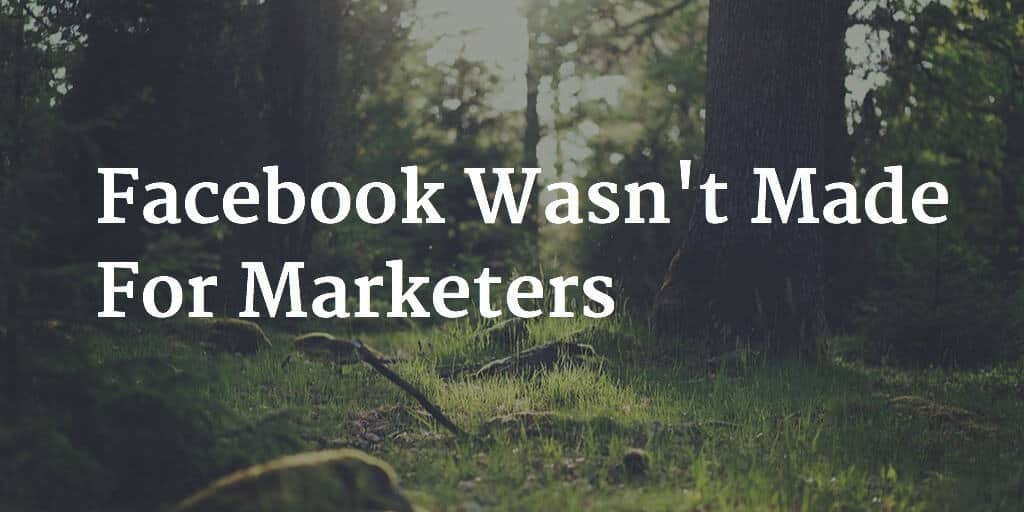
Changes to Facebook keep coming. The most recent change allows users to pick those they do and don’t want to see in their news feeds. Before that, they cut back on click-baiting. Balanced content from friends and Pages. All these changes have changed how marketers and users see Facebook.
While these changes certainly make for a better Facebook experience, many marketers see them in a very different light. Rather than being for the better, some believe they’ve been made simply to screw marketers and get them to open their pocket books. For those that believe these changes are targeted at marketers, it’s time to remember that Facebook isn’t about you.
What’s It All About?
When Zuck and the other founders started out to build Facebook, I’m certain the goal wasn’t, “Lets build a platform to allow marketers to advertise their products for free to millions.” Yet that seems to be how many marketers act. Facebook isn’t about marketers and it never will be. That’s never been the reason people go there. We go there to see pictures of our friends, to get updates on what our family is up to, and to see how those we had crushes on in high school turned out.
Facebook isn’t about the advertisers and marketers. It’s about the users. Yes, they let the rest of us in (and for that we should be thankful) but it’s not a marketing platform. It’s a social network. So many lose sight of that.
So Why All The Changes?
If Facebook isn’t out to make more money from marketers, why all the changes? Look at these changes not from the eyes of a marketer but from the user. Every one of them are intended to make the user experience better! Less click-bait wasting your time. Less brands shoving their worthless posts down your throat. More of the content and people you actually want to see! If you’re the end-user, all of these mean seeing more of what you want and less of what you don’t.
So What’s In It For Them?
Facebook isn’t without business motive in this. By providing a better user experience, people are more likely to spend more time on the platform. Like any website, the more you find on it that keeps your attention, the longer and more often you’ll visit. This means more opportunities for Facebook to show users ads and more opportunities for advertisers to have their messages seen.
This is the same reason Facebook has started spinning off many of the website functions into their own separate apps like Messenger, Groups, Moments, and more. They’ve found that more apps mean more time spent using them than if all those functions are contained in a single spot.
So Why Is This Great For Marketers?
All of this means good things for marketers too. Users spending more time on Facebook means more chances to see your content! Users being able to pick the brands they want to see in their feed means they can now see every update you post. The good brands should see a great boost.
With users spending more time on the platform, it’s time to really figure out what they want to see. These new controls give the user even more control of their experience and you need to make sure your content is part of it. If you’re still seeing crummy organic reach, it’s time to find out what your followers really want to see (not just what you want them to see). Users who are more engaged with a platform also more opportunity to engage with your content if you know what they want to see.
Take Advantage Of A Better Facebook
Sometimes marketers need to remember that many of the ways we’ve found to connect with our audience may not have been intended to be used strictly as such. While Facebook was never created to connect marketers with customers, it’s now one of the best ways to reach a huge portion of people across the planet. By occasionally reminding ourselves why these places really exist (for people, not profit), we can more easily see why they make changes that seem to stick it to the marketer but weren’t done with the sole intention of doing so.
By thinking about the goals of the general user rather than yourself, you can see how and why people use social media. This should put you in an even better position to use it in the best way to reach your audience. It only takes a minute to reflect.
Image: Made with Pablo by Buffer
